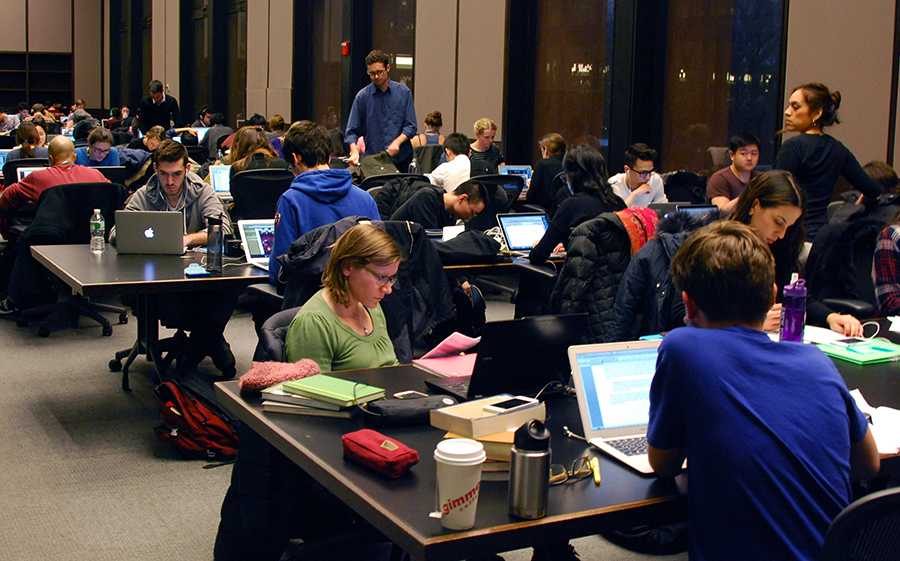Best ways to beat tough exams and papers this finals season
Students study on the fifth floor of Bobst as finals approach.
December 4, 2014
Preparing for exams can be tough. Here are some tips from students to make studying for finals easier.
Choose study habits that work best for you
Not all tactics work well for everyone. Be sure to choose a method that maximizes your retention and concentration.
For Stern senior Wesley Jia, studying alone is the best way to review for exams.
“Figure out if you study better in a group or alone,” Jia said. “I’ve found myself in study groups in which I just goofed off and got little done.”
LS sophomore James Krywin said he believes writing down information helps him retain the content better.
“When it comes for topics that require memorization such as biology or psychology, my preferred method of studying is writing the information out as I verbalize the words,” Krywin said. “Although this method might be tedious, it enables you to remember and recall information a lot more efficiently.”
Make sure to manage your time
It is important to use your limited time efficiently to best manage the large amount of content that can show up on a final exam.
CAS junior Allison Cai recommended creating a study schedule to focus on the most important information and stay on track. She also suggested scoping out a place in Bobst Library early.
“Plan, organize and make sure to prioritize classes that are weighted more,” Cai said. “Also, wake up early and get to Bobst or else you’ll find yourself wasting an hour of precious study time finding a spot.”
Jia suggested studying regularly every day instead of cramming near the examination days.
“Budget your time well and don’t procrastinate,” Jia said. “I find it more efficient to study two hours every day instead of six hours near the night before.”
Sleep well and avoid all-nighters
CAS junior Tiffany Martin, who works at the University Learning Center, advised students to avoid all-nighters in favor of a good night’s rest.
“To many students, skipping sleep to study seems to be an answer to fitting in all the necessary information for finals, but a lack of sleep doesn’t allow your brain to properly function,” Martin said. “It’s better to get a full night’s sleep so that you can properly focus and really absorb all the information to be reviewed.”
Get help if you need it
If struggling with content, ask someone experienced with the subject for help prior to the exam.
Krywin encouraged fellow students to be direct with their professors if they do not understand any of a course’s content.
“Nothing better than hitting up your professor and letting him know your struggles and worries,” Krywin said. “It will not only foster your relationship with him but will also give him an idea of how the class might be faring.”
Martin also said ULC Peer Tutoring can be a good way to clear doubts and review the content for the exam.
“Sometimes having a peer explain something in more regular terms can solidify a thought that wasn’t as clear in class,” Martin said.
A version of this article appeared in the Thursday, Dec. 4 print edition. Email Dhriti Tandon at [email protected].















































































































































